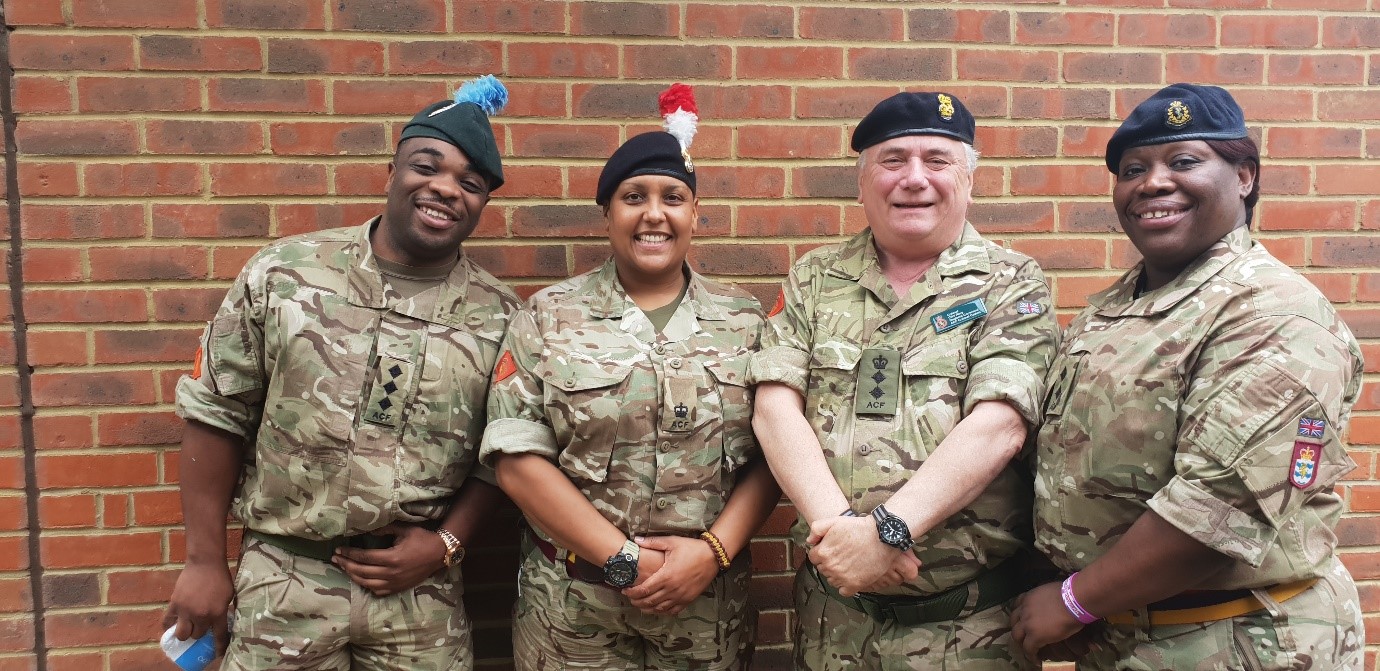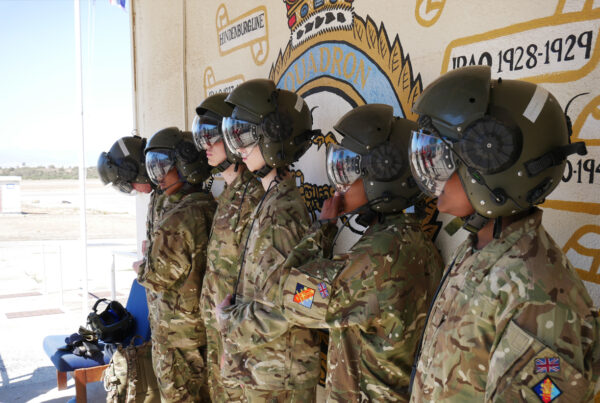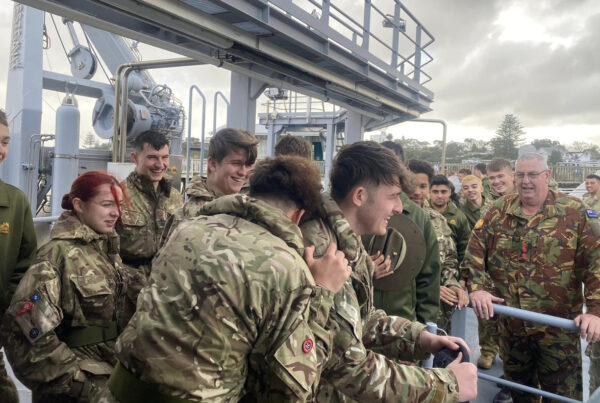In the current context of the swell of support for racial equality, we wanted to highlight some of the amazing support networks within the Cadet community.
We spoke with Major Dionne Konstantinious, Commanding Officer, 7 Coy from Greater London SE ACF Sector, who this year has been voted in as the co-chair of the BAME ACF Network along with Major Jon Barkat. Major Konstantinious gave us insight into why this network is so important to young people and the Cadet community.
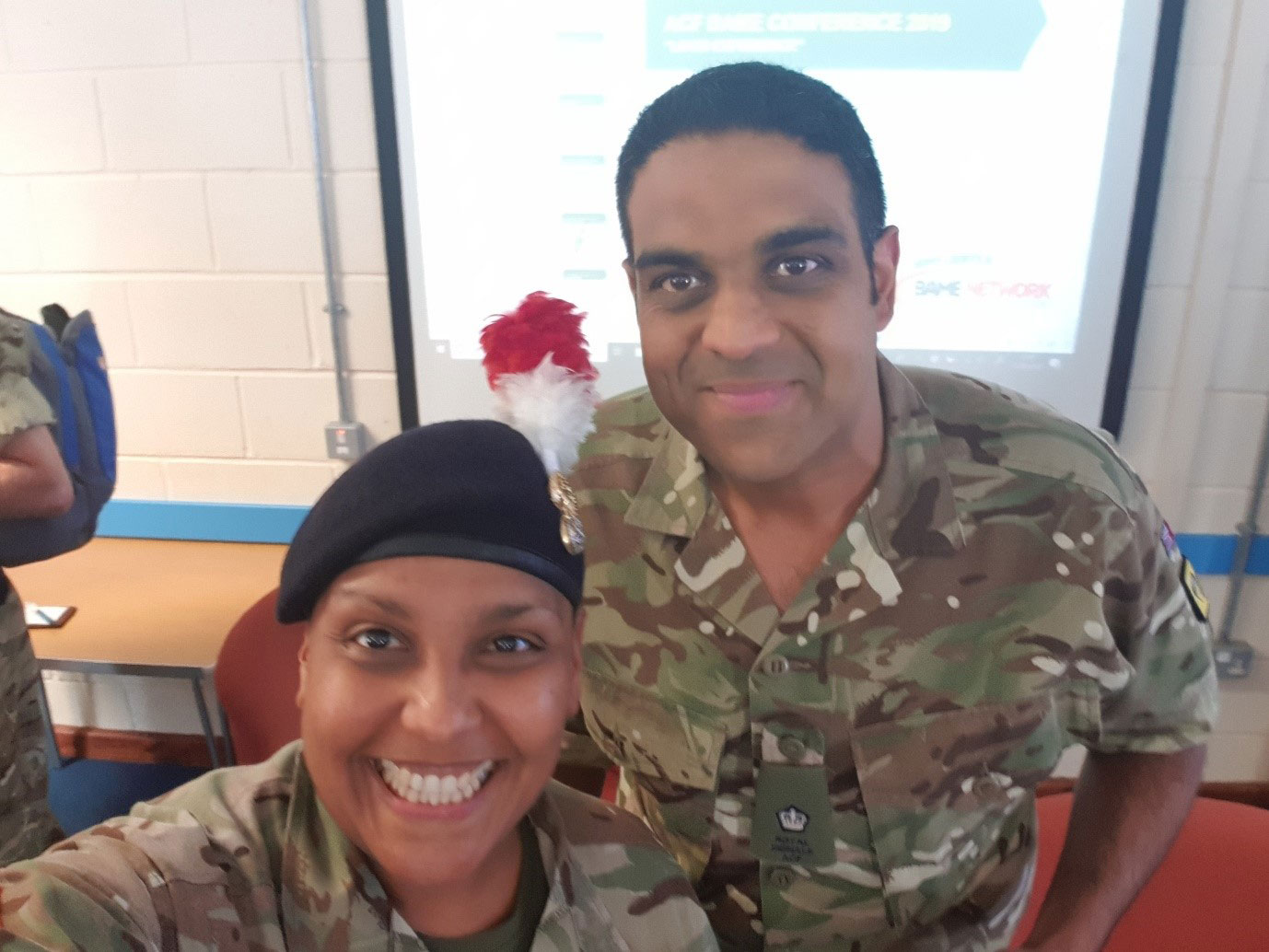
To start us off can you tell us about the BAME ACF Network?
First, I will start by saying that for me the word BAME has been put together for administrative purposes. It does not address the intersectionality of the groups it combines. Our experiences are very different and thus the needs are too. I use the term only for this interview.
The ACF Black Asian and Minority Ethnic (BAME) network launched its first conference in June 2019. It was a successful event that set the foundations to ensure that for those who identify as BAME have a platform by which they control the narrative on their own experiences. This has been a successful catalyst for providing a network that supports and inspires those from the BAME communities. It seeks to address inequities in the recruitment and retention of BAME colleagues from the point of joining and their continued progression through the rank system.
The network provides a safe space where people can feel informed, supported and inspired. Current statistics demonstrate that BAME instructors do not reflect society and the huge intake of BAME Cadets, particularly in the inner-city areas.
We connect with other organisations and individuals through our events. Since the pandemic, that has mainly been through online seminars and discussion groups. As a network, we hope to signpost and offer mentoring support.
Why is the BAME ACF Network important?
Some may ask why do we need a Black Asian & Minority Ethnic network? We are all equal right? No, sadly not.
We need it so that this amazing organisation can continue to align with modern times and the language used.
When you are often the only one in the room that looks like you and you have to constantly navigate those microaggressions it can have a lasting impact on your self-esteem. In isolation it may seem like ‘banter’ or that one is merely being over sensitive but the effects are real. It’s tiresome trying to fit in, whilst often those same behaviours are simultaneously chipping away at your identity and can have devastating effects on one’s self-worth, confidence, mental health and overall well-being, resulting in many BAME instructors leaving.
So, it is extremely important to have a safe space where people feel supported, heard, praised and are able to share their lived experience. On occasion I’ve been asked why I joined the ACF.
The question often is so loaded, emphasising the why has ‘someone like you’ joined? I always speak of the young spirited teenager that I was, wanting to replicate what I had seen on the 80s TV show ‘Krypton factor’. For those who don’t know it, it was a game show which combined quiz, puzzle and physical challenges. Contestants would compete in a series of rounds that tested their physical stamina and mental attributes. I didn’t fully understand it all at the time, I just wanted to do what they were doing and knew someone like me could. When I eventually joined the next best thing, the ACF, Lol! I didn’t expect to experience so many ‘isms’. Throughout my years as a Cadet, I can count on one hand how many BAME instructors were enrolled. As an adult instructor, it is still disappointing to see the disparity.
We need to continue to encourage and inspire more people from these communities to join and stay. This can only be achieved by first making available the right support networks. There is a wealth of untapped talent that is needed to help shape a positive future for our youth through the transferrable life skills the ACF offers them.
I often say ‘You cannot be what you cannot see’. Being a young person of colour can add a layer of marginalisation to their socioeconomic circumstances.
If young people don’t see people that look like themselves, those that have an understanding of their cultural norms, achieving from grass roots up to senior leadership, they can often believe that these opportunities do not exist for them; so why try?
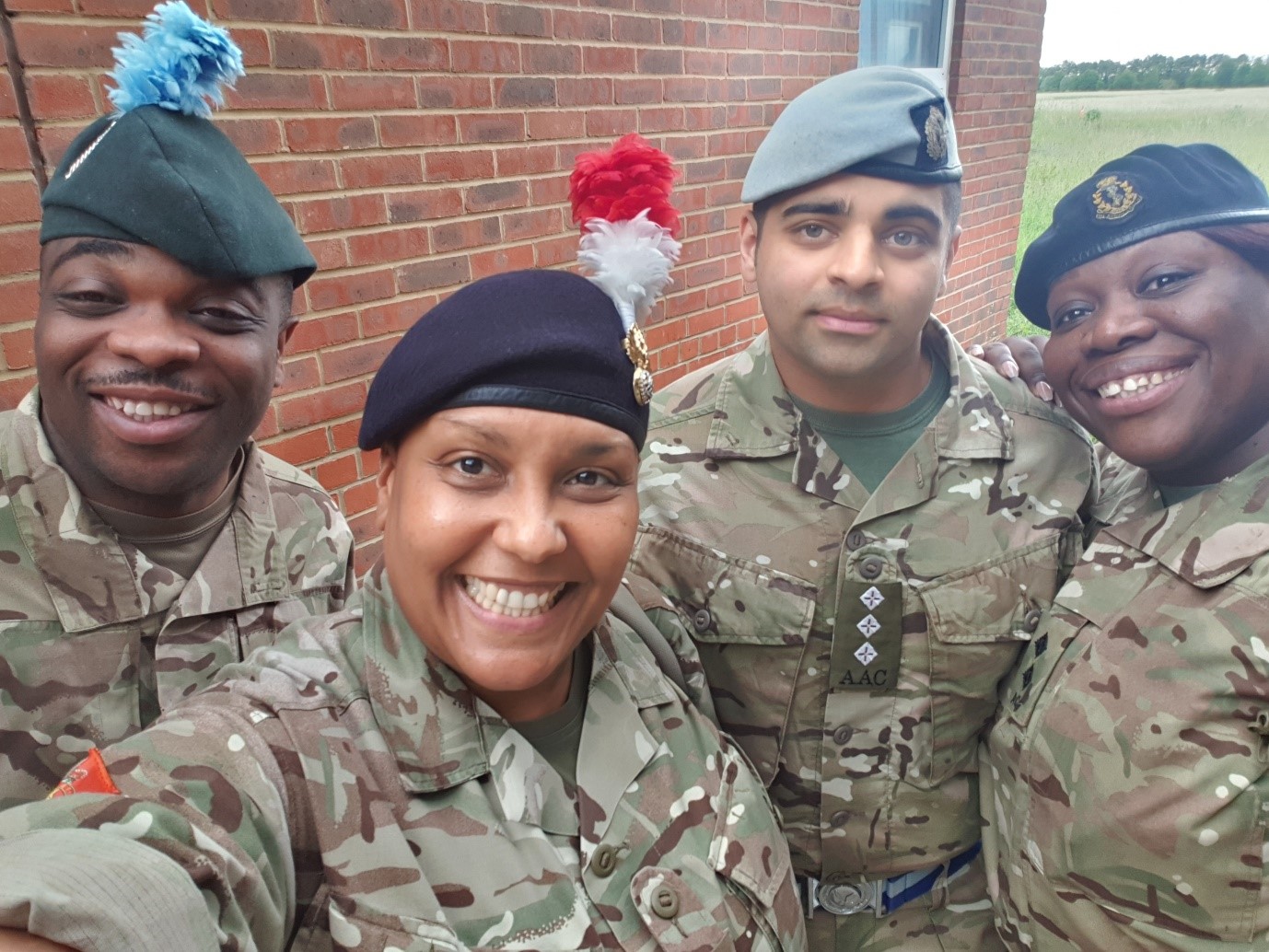
My staff, Capt V Acquah, Maj D Konstantinious, an ex-cadet (now a serving pilot) and Lt K Bambury.
What key development have you seen since being involved in the BAME ACF Network?
Since the first conference, the network has continued to grow and this is fantastic. Having a visible presence and a point of contact has been invaluable. The big game-changer has been the recent launch of a new leaflet in various languages to provide ‘gatekeepers’ of the Cadets’ info about our great organisation. There is so much more planned. We all hope that 2021 will bring with it new opportunities to continue the great work already started.
What does the future hold for BAME in the ACF?
It goes without saying it has been a very challenging year for everyone. The pandemic has paused some of our plans but we have come too far to just stop and there is much to do. Many of the events during the lockdown have ignited different conversations raised by Black Lives Matter and the BAME communities. We need to continue facilitating a safe place to have these conversations. We plan to grow the membership of the network through practical, structured and professional development. Expand the team to help deliver on our intents. This is by no means a quick fix; it is about the long-term investment in our people. The retention of a visibly diverse and inclusive organisation particularly in senior positions.
The status quo needs to change and the gatekeepers need to reflect this.
Until things change throughout the organisation, now more than ever we call upon our allies and those from the BAME communities to continue spreading the message.
